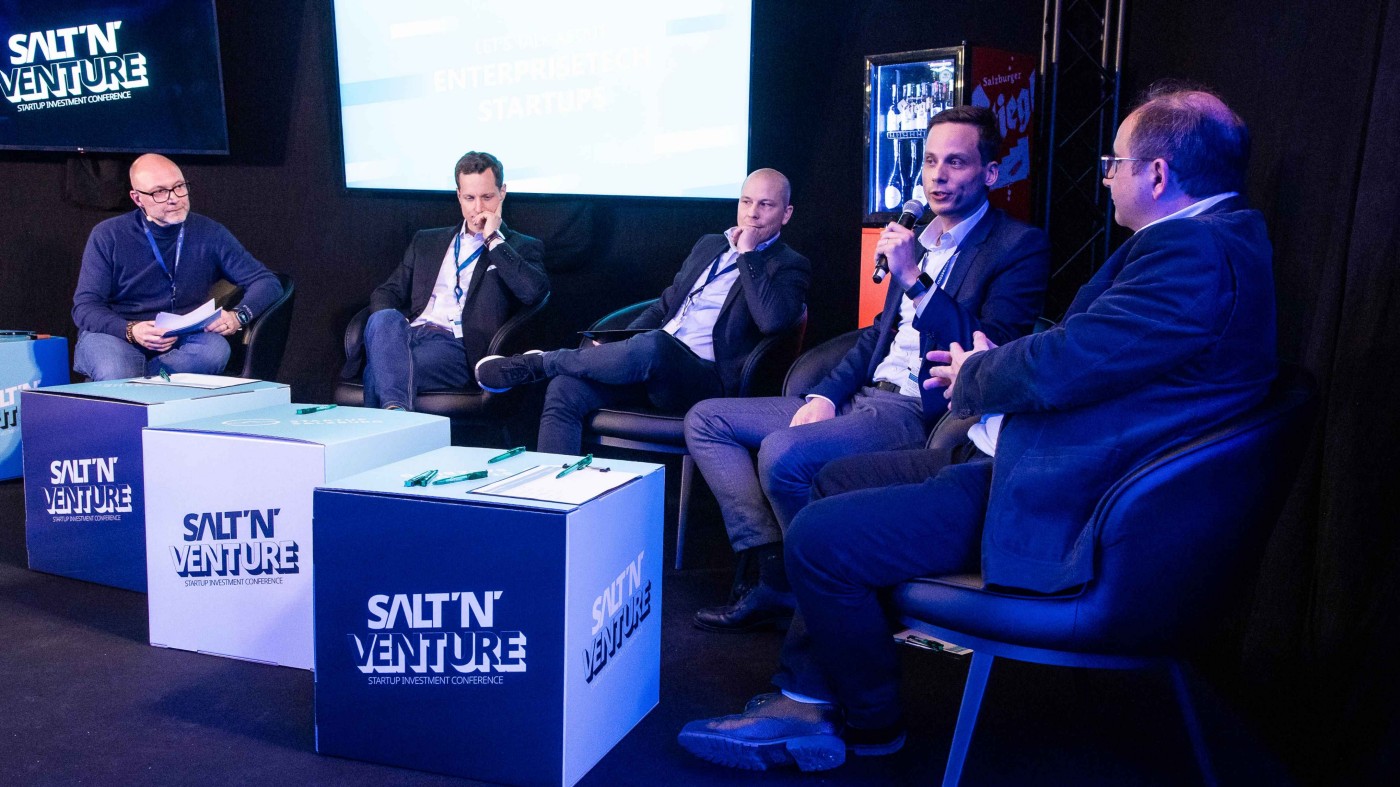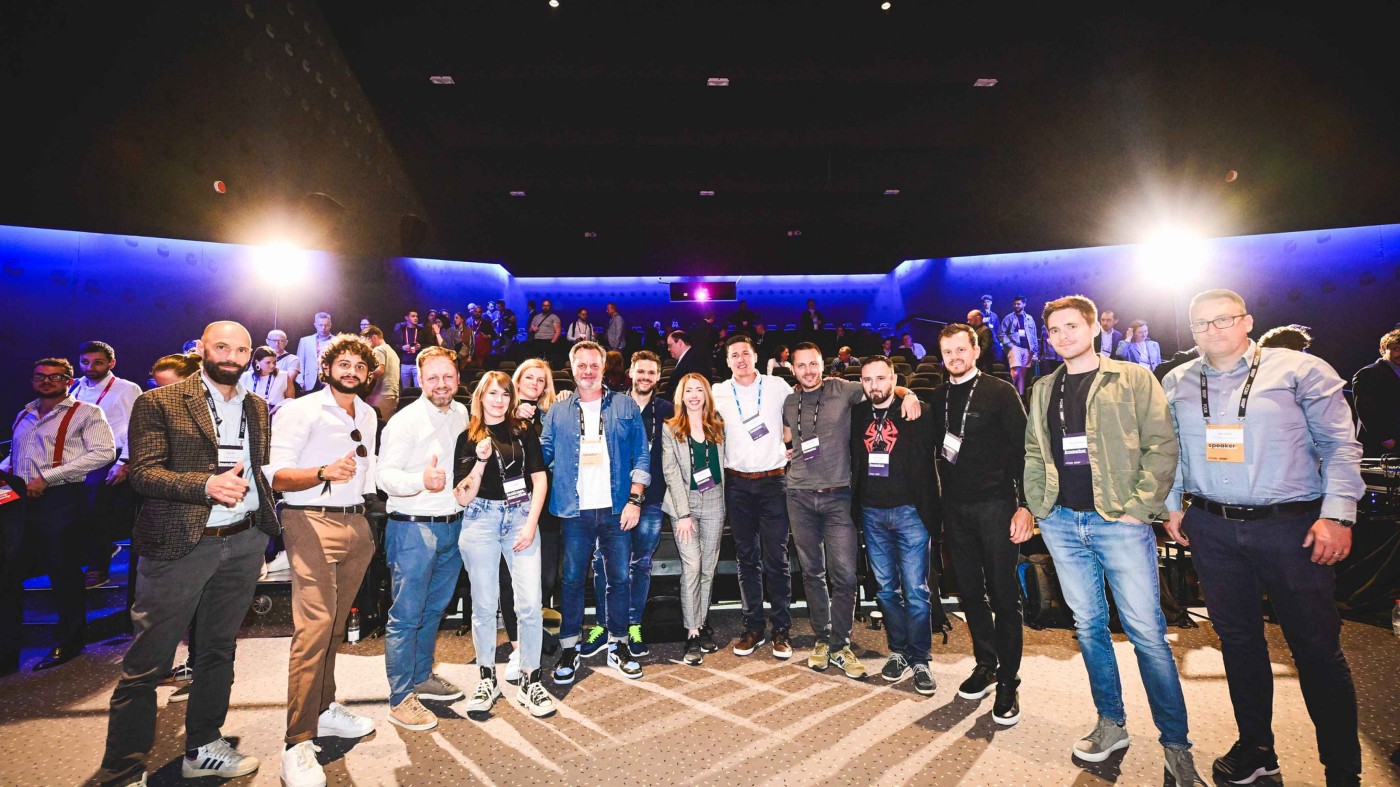
Mid-Year Insights: Trends from Europe's Top Tech and Startup Events
As we hit the midway point of the year, our calendar has been packed with a wide variety of tech and startup events that have connected us with brilliant minds, passionate founders and inspiring innovation enthusiasts across Europe. From vibrant symposiums and thought-provoking panels to dynamic pitching sessions, our team has been taking in the latest trends shaping the future of tech, venture capital and entrepreneurship at events like the Goldman Sachs Disruptive Technology Symposium, CEE VC Summit, Future Crunch, FIBE 2024, VC Central, RBI Investor Conference in Zürs, Salt'n'Ventures, 0100 Conference, PODIM and Latitude59.
We are excited to share the most valuable insights we gained from the events we attended in the first half of the year, highlighting our takeaways into the trends and ideas driving innovation in our industry.
Here’s a quick summary of what we learned:
- We are transitioning from transitional climate risk to addressing real, immediate climate challenges.
- AI-Driven innovation is propelling Fintech funding across Europe.
- Startups are navigating regulatory challenges in the evolving crypto-asset markets.
- Superapps are on the rise as Europe’s emerging digital trend.
From Transitional Risk to “Real” Climate Talk
In the ever-evolving landscape of climate risk assessment, we are now witnessing to a crucial shift from merely focusing on transitional factors to confronting the tangible, immediate challenges posed by events such as fires or floods. Transitional factors refer to the financial and operational challenges arising from shifts in policies, technologies and regulations as a result of calculating, forecasting and reducing greenhouse gas emission. While this practice has its demonstrated benefits, focusing solely on quantifying carbon emissions without taking into account the tangible aspect of the issue is rather ineffective.
The current shift to a more holistic approach signifies a move towards a comprehensive understanding of risk, particularly in the realms of real estate and insurance policy revision, which demand a more nuanced and structured approach beyond mere correlations. By recognizing the limitations of only relying on carbon metrics and redirecting attention to these more severe risks, stakeholders can better navigate the challenges of climate change with greater effectiveness.

AI-Driven Innovations Propel European Fintech
The fintech landscape in Europe has exhibited a mix of resilience and challenges, reflecting broader trends in venture capital investments. After experiencing a downturn in 2022, the market saw a modest recovery in 2023, with particular strength in AI-driven innovations. Startups like our portfolio company SESAMm, which leverages algorithms for ESG analysis, have attracted significant investment, underscoring the sector’s growth potential.
Dr. Carolin Gabor, Co-Founder & Managing Partner at Caesar, was present at FIBE Berlin and emphasized the crucial aspect of AI in both product and business model innovation, also highlighting that:
Fintech was always the largest sector for the past year when it comes to venture capital financing.
According to Dealroom Fintech 2024 report, Payments is the most popular vertical when it comes to receiving funding with $11.4B compared to the second most favored one which is Financial Management Solutions with $4.1B in funding.
In these respects, FIBE Berlin hosted plenty of though-provoking discussions on the topic of integration of AI in Payments, which marks a notable shift towards increased productivity. As Dominic Hoffmann, the Head of Northern & Central Europe of Klarna, the Swedish superapp, emphasized how the integration of AI in day-to-day business not only increased the efficiency of processes, but also customer satisfaction and overall innovation speed.
By the third quarter of 2023, VC funding for companies associated with AI nearly reached $29 billion, supporting approximately 2,000 ventures.
Navigating Crypto Regulatory Challenges
There is a growing concern of the Financial Stability Board and the European Central Bank regarding the rapidly evolving crypto-asset markets. The two bodies highlighted that if this trend continues, there could be significant risks to financial stability. To mitigate these risks, the EU introduced several regulations that aim to enhance financial stability and resilience, but which could also pose compliance challenges for startups.
The Markets in Crypto-assets (MiCA) Regulation introduces specific rules. For example, it limits the issuance of stablecoins to e-money and credit institutions. It also sets out requirements for companies that provide services related to crypto-assets, such as getting authorization and following certain financial safety measures.
Additionally, the Regulation on Digital Operational Resilience (DORA) was newly adopted. This regulation empowers the European Commission to specify how authorities and market participants should comply with digital resilience obligations. The goal is to ensure financial entities can withstand and recover from ICT-related disruptions. While DORA aims to protect the financial system, the varied levels of expectations for different types of startups and the overall compliance burden underscore the operational and financial challenges new companies might face.
In these respects, Dr. Nina-Luisa Siedler, Lawer at Siedler Legal, underscored that Europe is closing its borders in this area which might cause liquidity issues for the overall market at FIBE Berlin. She also emphasized the challenges of the two new regulations that some startups are already facing:
They have costs of about 500k per year for compliance. So that is typically out of the range of a typical startup.

The Rise of Superapps: Europe’s Emerging Digital Trend
Superapps, originating from China and exemplified by platforms like WeChat and Alipay, have revolutionized digital services by integrating multiple functions into a single platform. WeChat alone offers over 2 million services,
facilitating transactions worth an average of $250 billion annually. These apps combine social networking, messaging, banking and transportation services, providing unprecedented convenience for users.
The trend we observed in Europe is towards developing separate superapps for finance, mobility and commerce rather than a single multi-sector app. Startups like Klarna, Revolut, Bolt or Lydia are at the forefront of this movement. Klarna aims to challenge Amazon with a multi-product strategy that includes banking services, while Revolut offers a diverse range of products from banking to commerce. Bolt is expanding its services from transport to food and grocery delivery, focusing on reducing private car ownership.
The future of superapps in Europe will likely be shaped by strategic alliances, regulatory frameworks and consumer behavior, which are significantly different from their Asian counterparts.
Thomas Muchar, Managing Director at Elevator Ventures, shared his insights on the rise of superapps during a panel at PODIM:
For Europe I see separate superapps for finance, mobility and commerce rather than one multi-sector app. The future of superapps in Europe will likely be shaped by alliances, regulatory frameworks and consumer preferences.

Shaping Tomorrow
As we reflect on these mid-year insights, several key takeaways emerge addressing real, immediate climate challenges, leveraging AI in fintech, navigating regulatory landscapes in crypto-assets and capitalizing on the rise of superapps.
At Elevator Ventures, we are committed to empowering founders to drive transformative ideas and make a meaningful impact. If your startup aligns with any of these trends, we’d love to hear from you.
Reach out to explore investment opportunities and collaborations at: office@elevator-ventures.com.
